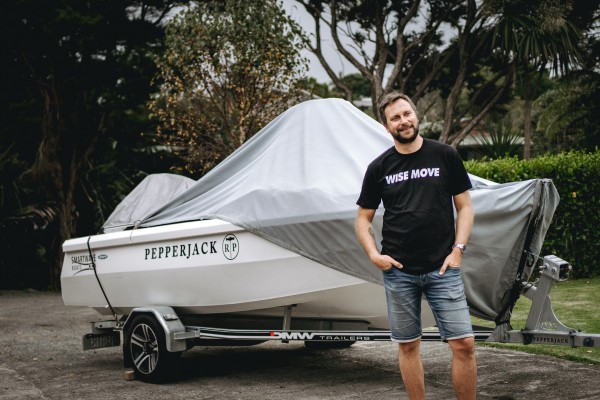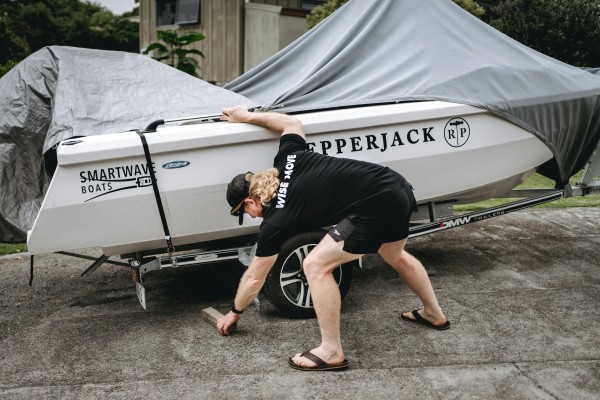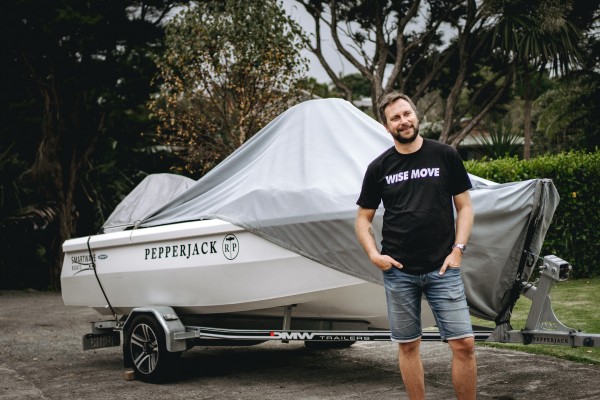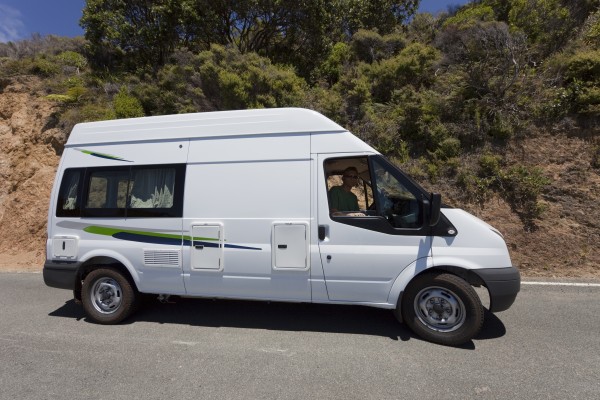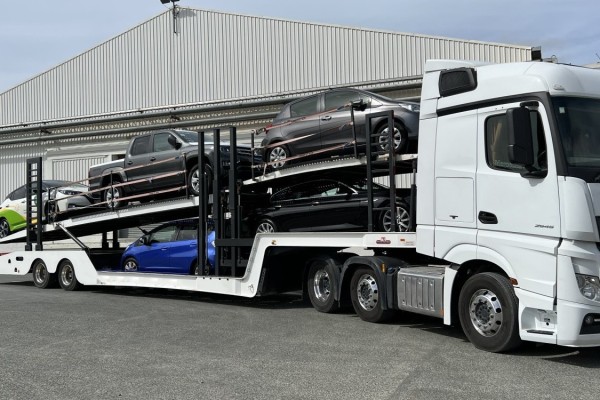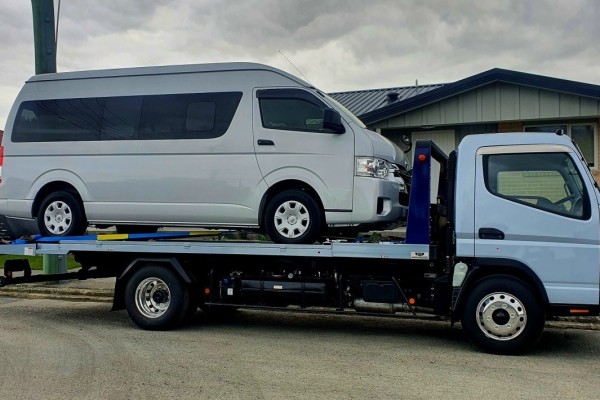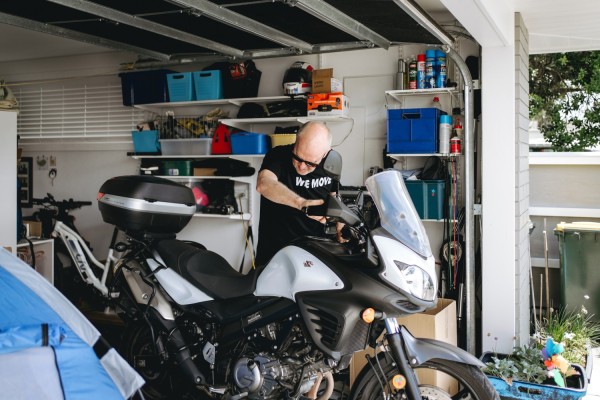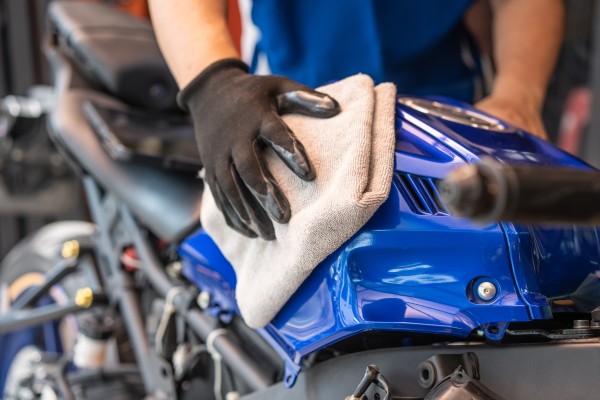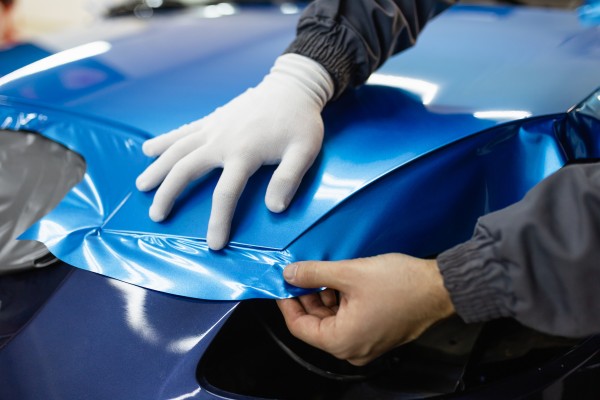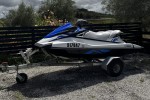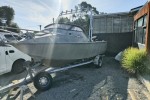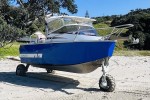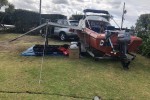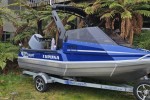Buying a second-hand boat? Here’s what you need to check first
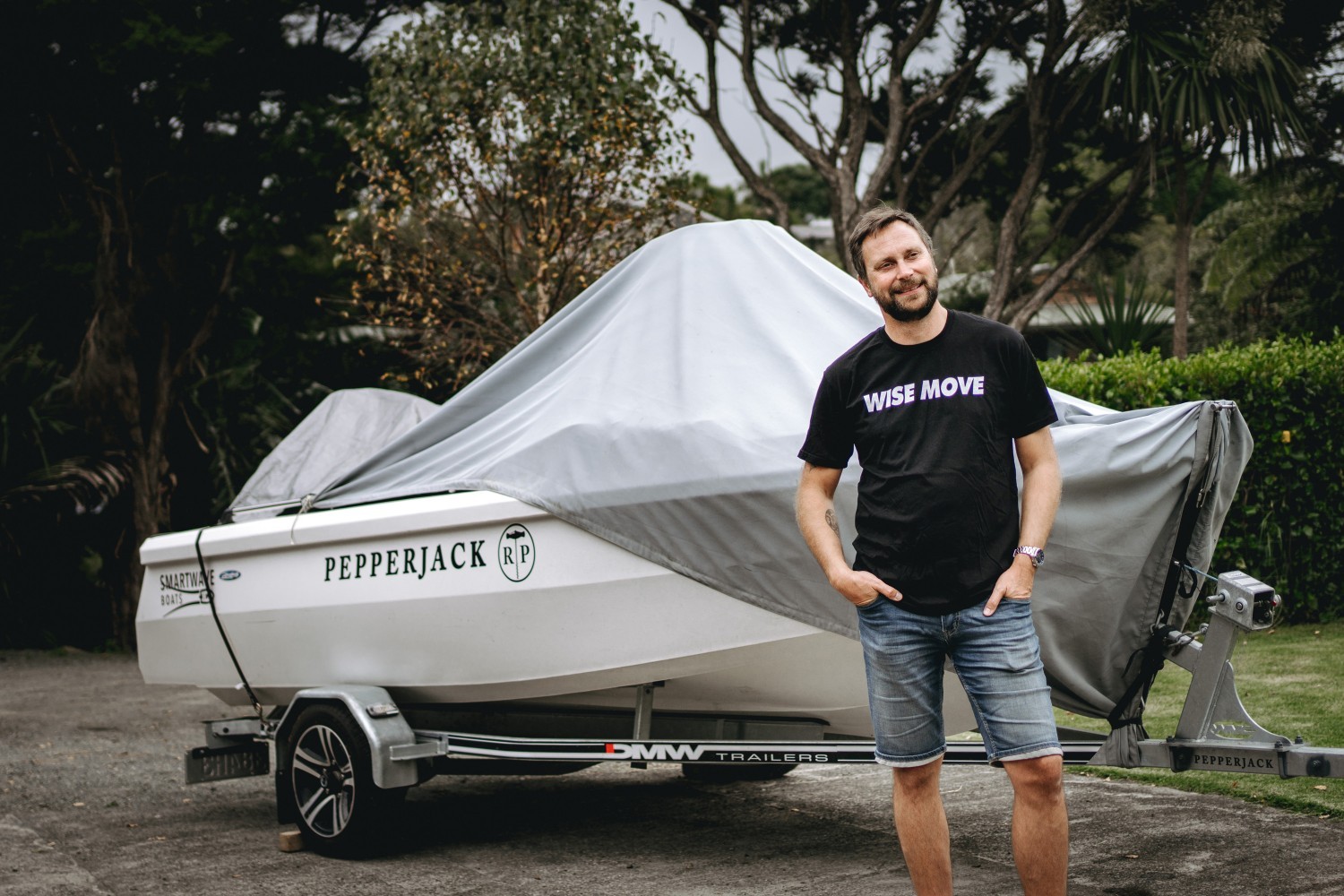
Boating is a popular pastime in New Zealand. There are estimated to be around 220,000 registered recreational boats in New Zealand. That's the equivalent of around one boat for every 20 people.
Whether you’re a boating enthusiast or just getting into water sports, fishing or spending time on the water, buying a second-hand boat might be on your radar. Before you buy a boat second-hand, there are a few things you should know.
The stolen boat market in New Zealand
Boat theft is a significant problem in New Zealand. It makes sense — boats are expensive and not the easiest thing to keep secure. Many stolen boats are sold on the black market or through online classifieds websites.
In some cases, buyers may unwittingly purchase a stolen boat without realising that the seller does not legally own it. To avoid this risk, it is important to conduct thorough research and take appropriate precautions when buying a second-hand boat, as outlined in the guidance provided by the New Zealand Police.
Why buy a second-hand boat rather than a new one?
Cost is the main driver for most people buying a second-hand boat. New boats are expensive, and buying a used boat can help you save a significant amount of money.
Buying second-hand is an appealing option for people just developing an interest in boating, especially if you want to explore boating as a hobby and aren’t sure if you’ll pursue it long-term.
Buying a second-hand boat can help prevent over-capitalising and investing more money into a boat than it is worth. By purchasing a used boat, buyers can instead spend their money on other aspects of boating, such as maintenance, storage, and accessories.
Some people might simply prefer the character and charm of owning an older boat, which may have a unique history and character that new boats do not possess.
What to check for before buying a second-hand boat
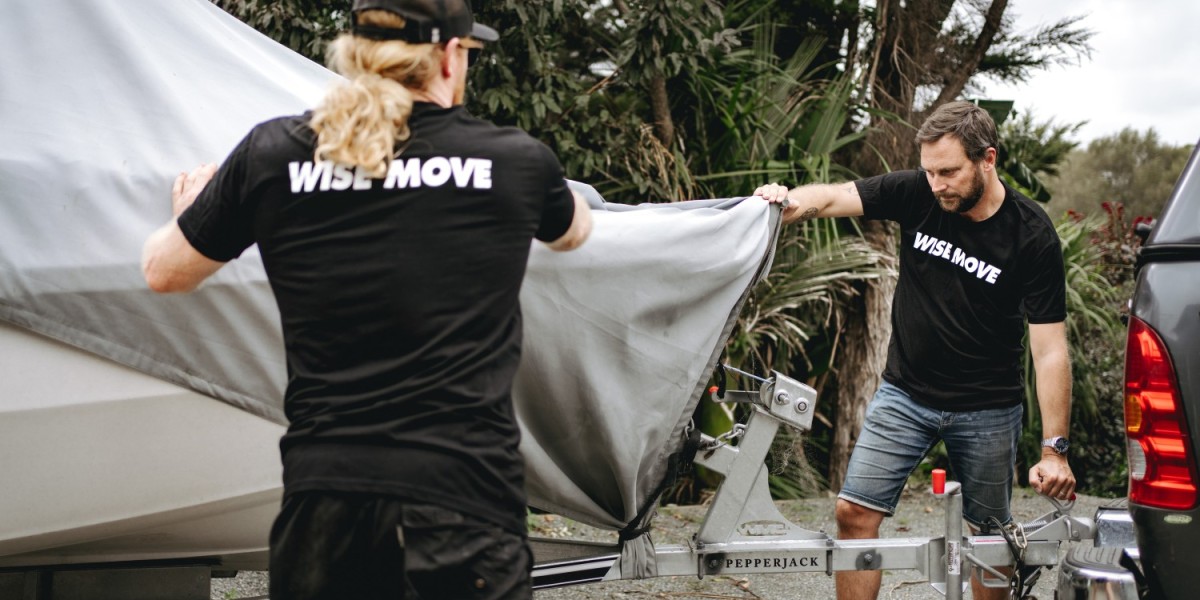
Like buying a secondhand car, buying a boat comes with some risk. Fortunately, there are steps you can take to ensure the boat you are about to buy is in good condition and being sold legally.
How to ensure the boat is being sold legally
Pay a reasonable price for the boat
Beware of a deal that seems too good to be true. If the price is much lower than the market value, it may indicate that the boat is stolen. You don't want to purchase a stolen boat that will be confiscated if it is eventually recovered by the police.
Locate the serial number of the outboard motor
All outboard motors should have a serial number on an aluminium tag or sticker attached to the transom-mounting bracket. If the sticker or tag is missing, be suspicious. The serial number may also be stamped into the engine frost plug located in the block of the motor.
Locate the serial number of the boat
Some boat manufacturers attach an aluminium tag with the serial number onto the boat, which can be found on the dashboard, outboard, or transom.
Check the trailer registration
Ensure that the trailer's registration date matches the boat's manufacturing date. Be cautious if the boat is being sold on an unregistered trailer or a recently re-registered trailer. The boat and trailer may be stolen, and the offenders may have re-registered the stolen trailer to disguise it.
Inquire about the seller's reason for selling the boat
If the seller has only had the boat for a short period, it may indicate that something is wrong with it or that it is stolen.
Trace the boat ownership history
Confirm the previous owner's details and contact them to confirm that they sold the boat to the current seller. It's best to go back to the original dealer who sold the boat new to verify that it has not been stolen.
Confirm the details of the seller
Get information about where the seller lives and the vehicle they drive. Don't meet the seller in a public place or deal over a cell phone.
Check if the trailer is stolen
Contact your local police station with the trailer registration number to check if it has been reported stolen.
Check if money is owed on the boat
The seller may have secured a loan to purchase the boat, and the bank or finance company will have a financial interest. This could affect you as the new owner. You can contact MotorWeb to check if there is any money owed on the boat.
How to ensure the boat is in good condition
Check the hull and transom
Inspect the hull and transom for any signs of cracks or soft spots, particularly with fibreglass and wooden hulls. For aluminium boats, check for any cracks or signs of fatigue in the welds. Look for any raised or discoloured spots where fittings meet the hull, as this could indicate a weakening of the hull.
Ask about the previous water usage
Ask the seller about how the boat has been used previously. Find out if it's been used in freshwater only or saltwater, as saltwater can be harsher on boats and can lead to faster deterioration if the boat hasn't been properly cared for.
Inspect the propeller and motor
Check the propeller and outboard or stern leg for any signs of damage or denting from hitting things or running aground. Even a slightly damaged prop can cause the boat to operate poorly. Also, look at the outboard's skeg, indicating how well the motor has been looked after.
Check the electrical system
Inspect the battery and turn on the electronics, such as the VHF and chartplotter, to see if they power up and function correctly. Ensure the boat's wiring loom is neatly harnessed and isn’t messy.
Look at the hour-meter and service records
Check the boat's hour meter to determine how much work it has done, and ask the seller for the service records, which can show if the boat has been regularly maintained.
Get a professional inspection
Consider hiring a boat service centre to perform a pre-purchase inspection for a small cost. They can inspect the hull, motor, and trailer and let you know if there are any concerns. If the boat is moored, it's highly recommended to get an Out of Water Survey done by a qualified shipwright or surveyor. This is a detailed report that assesses the condition and function of the boat, similar to a building inspection on a house.
Need help transporting your boat to your home?
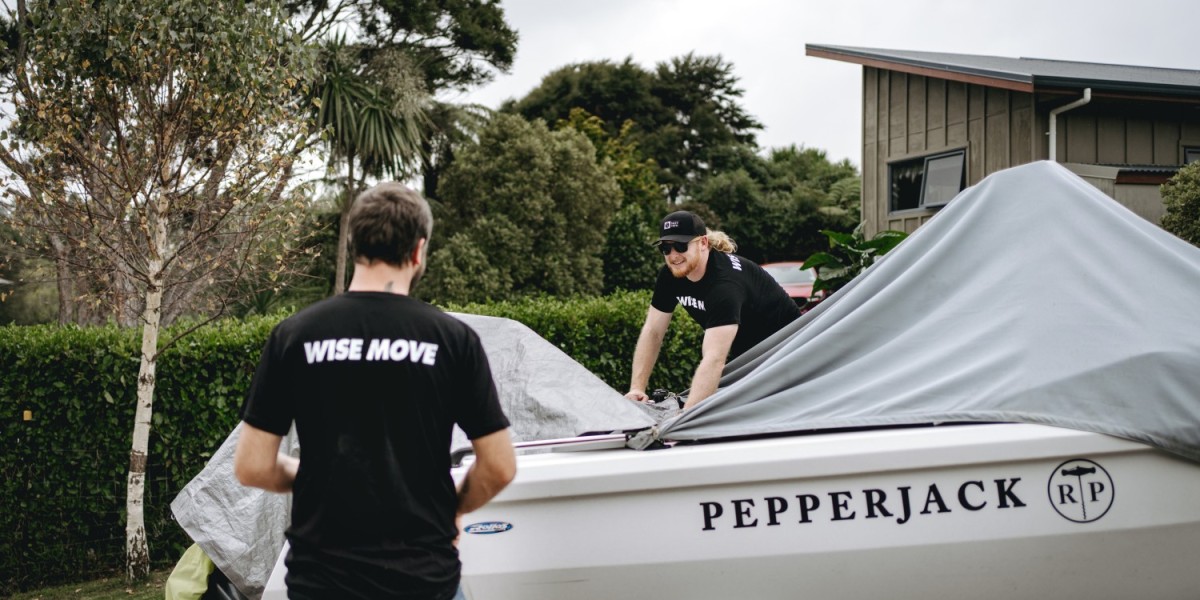
Find professional boat haulage on Wise Move. Access the best budget-friendly boat moving services from trusted and professional movers in New Zealand. Get your boat delivered safely to your door. Book now.
What do our customers say?
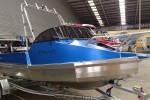
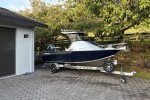
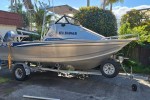

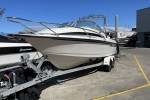
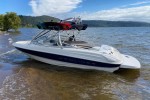
For every (wise)move









